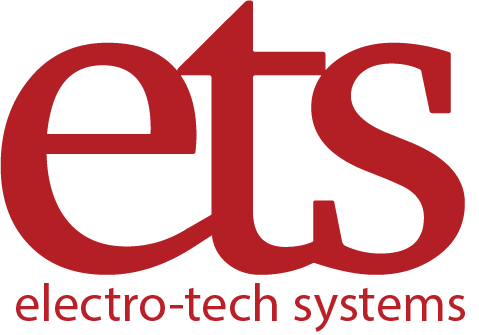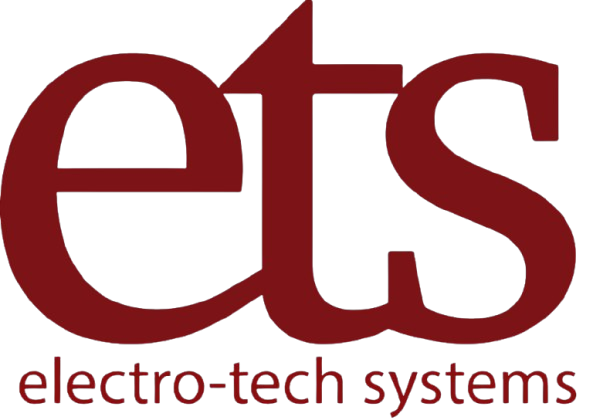ElectroTech Systems: Precision Instruments for Modern Industries
In an era where precision, safety, and environmental control are more important than ever, industries across the board look to instruments that deliver exacting performance. Precision Instruments—devices that measure, monitor, control, or simulate physical, electrostatic, or environmental parameters—are key enablers of quality, compliance, and innovation in modern manufacturing, research, and product development.
Electro-Tech Systems (ETS) is one company at the forefront, designing and manufacturing high-quality electrostatic instrumentation, environmental control solutions, and test & calibration tools. Their solutions serve diverse sectors: Automotive, BioMedical, Universities, Electronic Components, ESD Packaging, Industrial RTV Curing, Military, Pharmaceutical, Cosmetics & Personal Care. Let’s take a tour of these industries and see how precision instruments from ETS make a difference.
What Are Precision Instruments?
Before diving into industries, it helps to define what we mean by precision instruments:
- Instruments that provide accurate, repeatable measurements or control of variables like static charge, resistance, humidity, temperature, etc.
- Tools for testing, simulating, and verifying that products, materials, and environments meet strict standards (for safety, reliability, compliance).
- Devices that enable environmental control (e.g., gloveboxes, environmental chambers) to protect sensitive processes or materials.
ETS’ product line is built around these capabilities: ESD (electrostatic discharge) simulators and testers, environmental controllers and gloveboxes, static meters, high-voltage supplies, resistance kits, and calibration services. These are the tools industries need to deliver integrity and performance.
Industries Served by ElectroTech Systems & How Precision Instruments Matter
The following are the primary industries that ETS services (as listed on its Industries page), with examples of how precision instruments are utilized in each.
- Automotive
The automotive sector demands great dependability for safety, electrical systems, sensors, control units, and other components. Static discharge can harm delicate equipment, while unregulated humidity or temperature during manufacture might deteriorate materials or adhesives.
Static meters, high-voltage power supplies, environmental gloveboxes, and controllers are examples of ETS devices that help car components survive and perform in real-world conditions during production and testing. Precision guarantees that parts do not fail, and that airbag sensors, infotainment electronics, and safety systems continue to function after many years of use.
- BioMedical.
Cleanliness, environmental control, and precise electrostatic control are crucial in biomedical manufacturing and laboratory settings. Whether creating diagnostic gadgets, medical implants, or performing delicate biochemical assays, zero contamination, accurate humidity, temperature, and static control are essential.
ETS environmental gloveboxes and environmental controls assist in the maintenance of sterile or semi-sterile settings. ESD instruments protect biological sensors and electrical components. Calibration services ensure that measurement devices used in medical research and industry are accurate within acceptable limits.
- Universities
Universities frequently contain research laboratories that conduct advanced studies in materials science, physics, chemistry, and engineering. They require precise instrumentation to train students, validate theories, and conduct controlled experiments.
ETS’ solutions, which include static measurement kits, ESD simulators, and environmental control systems, enable labs to simulate industry settings, test new materials, and ensure experiment reproducibility. Universities also benefit from calibration and consulting services, which ensure that instruments used in teaching and research remain reliable over time.
- Electronic components.
Semiconductors, printed circuit boards, sensors, and microchips are very vulnerable to electrostatic discharge (ESD). Even a small static spark can cause harm to a chip. Furthermore, environmental factors (temperature and humidity) influence performance and yield.
ETS provides ESD simulators, resistance meters, monitors, static decay measuring instruments, shielded test enclosures, and other products to assist electronic component manufacturers in risk detection, prevention, and mitigation. Precision entails fewer rejects, more reliability, and a longer product lifecycle.
- ESD Packaging
Electronic packaging must do more than just store objects; it must also protect them from static, moisture, and other environmental elements that can destroy them. ESD (Electrostatic Discharge) packaging is intended to dissipate static charges or shield them.
ETS supplies tools for testing packaging materials (static decay, resistance), monitoring static in packaging rooms, and ensuring that packaging fulfills industry specifications. Precision measurement assists packaging designers in selecting appropriate materials and manufacturers in ensuring quality.
- Industrial RTV Curing
RTV (Room Temperature Vulcanizing) silicone and other formulations are commonly used in industrial applications, particularly for potting, sealing, insulation, and so on. To avoid problems, proper curing (hardening) requires certain environmental conditions (temperature, humidity) and static charge control.
ETS environmental control systems assist laboratories and production facilities in maintaining proper temperature and humidity levels. Precision instruments, such as environmental controllers, ensure consistent results from batch to batch. Static control may also help to prevent curing or powder adhesion issues.
- Military
Military components and equipment (avionics, communications, sensors, and weapons systems) must meet highly stringent criteria. ESD occurrences, environmental extremes (humidity, temperature, altitude), and failure are not acceptable.
ETS precision instrumentation can help with stress testing, ESD qualification, environmental simulation, and certification support. Calibration services, testing simulators, and environmental gloveboxes can help military contractors and authorities guarantee that equipment meets or exceeds standards.
- Pharmaceutical.
The pharmaceutical sector requires sanitation, environmental control, regulatory compliance (such as cGMP and FDA), and the safe manufacture of pharmaceuticals and biologics. Contaminants, moisture, static, and uncontrolled airflow can all jeopardize product safety and potency.
ETS precision instruments, such as environmental gloveboxes, temperature and humidity systems, controllers, and static monitoring, help to maintain compliance, safeguard active substances, and guarantee that packaging and handling do not damage product quality. Calibration services ensure that measuring instruments (weight, volume, etc.) are correct, which is critical for regulatory reporting.
- Cosmetics, hair care, and personal hygiene products
Even businesses that appear less “engineering-intensive” demand precision. Moisture content, static, environmental storage, and packaging can all have an impact on product stability, texture, safety, and the consumer experience.
ETS can assist by providing environmental controls, detecting static buildup, ensuring that packing materials protect items, and equipping testing labs with precise, calibrated gear. Precision instruments help to maintain product quality, reduce recalls, and protect brand reputation.
Key Product Categories of ETS
Various are some of the precise instrument types that ETS provides, which are used in various industries:
Environmental Controls and Gloveboxes: Controlled environments to reduce contamination, manage humidity and temperature, etc. (important for biomedical, pharmaceutical, and electronic industries).
Electrostatic Instrumentation: Static meters, resistance meters, charge plate analyzers, electrostatic voltmeters, and other devices used to measure or control static in manufacturing or laboratories.
Testing & Consulting Services: Material testing, product testing, ESD test labs, and on-site consultancy to diagnose and resolve static or environmental concerns.
Calibration Services: Ensuring that measurement devices (voltage meters, static meters, resistance probes) are precise and traceable.
Why Precision Instruments from ETS are Vital?
Here are some general advantages of utilizing high-quality precision instruments like those from ETS:
Consistency and Yield Improvement: When variables are tightly controlled, faults decrease, manufacturing yields increase, and dependability improves.
Regulatory Compliance: Many businesses (pharmaceuticals, military, electronics) have stringent regulatory requirements. Precision measurement and environmental control are frequently necessary.
Cost Savings: Avoiding scrap, recalls, warranties, and failures saves money. Improved process efficiency and waste reduction immediately benefit the bottom line.
Safety and reliability: Failure can provide major safety issues in industries such as automotive, military, and biomedicine. Precision instruments can help prevent latent flaws or environmental risks.
Innovation & Competitive Edge: Companies that invest in precision instruments are better positioned for innovation. They can create more efficient materials, smaller circuitry, more sensitive sensors, and so on.
How ETS Ensures Precision & Adaptability?
ETS does more than just manufacture instruments; it also customizes them to meet the needs of the industry. Here are some of the ways they ensure precision and usability:
- There are numerous measuring alternatives available, including static meters, decay measures, resistance probes, and more. Multiple tools enable the use of the appropriate instrument for the job.
- Environmental control systems are designed for a variety of sizes and applications, from small enclosures to large gloveboxes.
- Calibration and consultation services ensure that data is accurate and useful. Calibration provides traceability and confidence.
- Their cross-industry knowledge means they understand the unique precision requirements of each sector, such as cosmetic packaging against electronics or health devices.
How Precision Instruments Make a Real Impact?
Consider a medical device maker developing a new sensor that operates in low light and high humidity (for example, moisture-sensitive chips). Humidity, if not properly controlled, can produce condensation or damage. Handling can cause static discharge, which can destroy microcircuits.
Using gloveboxes with strict temperature and humidity regulation, static monitoring, and calibration-verified instrumentation, the manufacturer can:
- Ensure that sensor components are never exposed to hazardous moisture during assembly.
- Prevent static damage during packing and shipping.
- Deliver devices that pass regulatory tests and perform consistently in the field.
Real-world effects include fewer returned goods, more customer trust, and a lower cost of quality.
Challenges & Trends in Precision Instruments
The needs for precise equipment change as industries evolve. Below are some trends and challenges:
- Miniaturization: As components (such as microelectronics or medical implants) become smaller, measurement devices require higher resolution.
- Harsh environments: Instruments must function in areas of pollution, high humidity, and extremely high temperatures.
- Data integration: Customers desire instruments that communicate with digital systems, generate automatic reports, and allow for remote monitoring.
- Regulation tightening: Stricter environmental, safety, and quality rules increase need for more precision.
- Sustainability: cutting back on waste and energy use, as well as utilizing more environmentally friendly materials for environmental control and instrumentation.
ETS is well-positioned due to its diverse product portfolio, consulting services, and calibration options.
Conclusion
Precision instruments are more than just tools; they form the foundation for modern industry, research, and product quality. Precision, measurement, and environmental control are important in a variety of fields, including automotive safety, biomedical innovation, colleges pushing the boundaries of science, and cosmetic businesses defending their reputation.
Electro-Tech Systems (ETS), with its diverse range of precision equipment, environmental control solutions, and service offerings, is an essential partner for sectors facing high demands. Their capacity to create, test, calibrate, and counsel enables businesses to meet high standards while maintaining innovation and efficiency.
If your company operates in one of the sectors we discussed—or any field where measurement, static control, or environmental precision are important—these are the tools you need in your toolbox.

